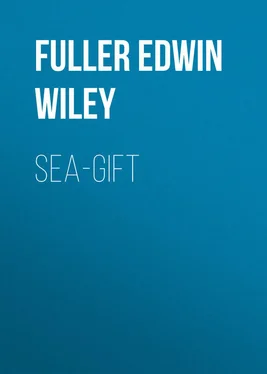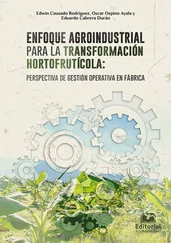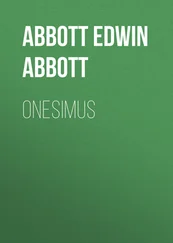Edwin Fuller - Sea-gift
Здесь есть возможность читать онлайн «Edwin Fuller - Sea-gift» — ознакомительный отрывок электронной книги совершенно бесплатно, а после прочтения отрывка купить полную версию. В некоторых случаях можно слушать аудио, скачать через торрент в формате fb2 и присутствует краткое содержание. Жанр: foreign_antique, foreign_prose, на английском языке. Описание произведения, (предисловие) а так же отзывы посетителей доступны на портале библиотеки ЛибКат.
- Название:Sea-gift
- Автор:
- Жанр:
- Год:неизвестен
- ISBN:нет данных
- Рейтинг книги:4 / 5. Голосов: 1
-
Избранное:Добавить в избранное
- Отзывы:
-
Ваша оценка:
- 80
- 1
- 2
- 3
- 4
- 5
Sea-gift: краткое содержание, описание и аннотация
Предлагаем к чтению аннотацию, описание, краткое содержание или предисловие (зависит от того, что написал сам автор книги «Sea-gift»). Если вы не нашли необходимую информацию о книге — напишите в комментариях, мы постараемся отыскать её.
Sea-gift — читать онлайн ознакомительный отрывок
Ниже представлен текст книги, разбитый по страницам. Система сохранения места последней прочитанной страницы, позволяет с удобством читать онлайн бесплатно книгу «Sea-gift», без необходимости каждый раз заново искать на чём Вы остановились. Поставьте закладку, и сможете в любой момент перейти на страницу, на которой закончили чтение.
Интервал:
Закладка:
P. S. – A eastern king would not believe the traveller when he told him about thick ice.
This postscript I added as a display of my knowledge of history, which I feared would appear pedantic in the body of the composition, but would be striking and casual at its close.
This important production I folded, endorsed with my name, and laid it away till Friday evening. Before handing it in, I read it to father and mother. I construed their smiles into compliments, and carried it to Mr. Morris with no small degree of satisfaction. Addison never felt more sure of praise than I did; and yet the following week ‘twas returned to me a perfect Joseph’s coat of red ink corrections and erasures. Væ literatis!
But compositions were nothing to my next appearance in the school, for we were soon required to declaim. Here again there was trouble in the selection of a suitable piece for declamation; but I at length found a piece which I thought was admirably adapted to my style, and, preparing it carefully, I awaited with impatience the first evening of our practice.
It came at last, and, as I saw the “first” scholars walk up the rostrum with dignity, and with grace of manner and well modulated voice, declaim beautiful selections, I felt that nothing was easier, and in my self confidence pitied the poor blockheads, of which there were not a few present, who drawled out their speeches in such an awkward and confused way. I was considerably worried, however, as Mr. Morris came down the roll, to find that no less than three of the smaller boys had selected exactly the same piece I had; still, I gathered encouragement from the fact that they all spoke it badly, and that my effort would show to a still better advantage after theirs. I was startled from my complacent comparisons by the loud tones of Mr. Morris, calling out:
“John Smith, you will next declaim!”
It is strange how easily confused and startled we are by the unexpected pronunciation of our names in public; the simple utterance of mine, on this occasion, overturned all my confidence and self-reliance, and I rose from my seat with a hair-rising sensation that took away my last hope of distinction.
I ascended the rostrum with that peculiarly awkward feeling of being in somebody else’s skin, which fitted badly, and was especially tight about the cheeks and eyes. And my hands! I had used them in a thousand ways, but now, for the first time, became really and painfully aware of their existence. I had hitherto regarded them as an indispensable, though unconsciously possessed, part of my anatomy; but I now looked upon them as excessively inconvenient appurtenances, and I would have given a finger almost to have had them hung out of sight on my back. However, there they were and I had to dispose of them. After making my bow with my little finger on the seam of my pants, I put both hands for safe keeping in my trowsers’ pockets. They could not, however, long remain there, for, as I placed that idiotic youth upon the “burning deck,” out they came for a gesture, which finished, to give them something to do I put them to pulling down my vest, which had an unaccountable tendency to sever all connection with my pants. The flames now had to be shown
– ”round him o’er the dead,”
and my hands nobly left my vest for action. Coming again to me idle, I sent one to my pocket, and the other to my mouth, where it remained during the greater part of my speech, spoiling out the words as fast as they issued from that orifice.
My embarrassment and confused state of ideas also developed other startling blunders, which cooler moments would have corrected. The boys, in their naturally perverted disposition, had quite a habit of transposing the first letters of words in a sentence, exchanging with one word part of another, thereby creating a language that Cardinal Mezzofanti could never have mastered. With my imitative tendencies, I had no sooner entered the school than I caught the habit in all its force; and talked in this perverted style so constantly that I was an animated Etruscan hieroglyph to all at home. William, at the table, always waited in stupid astonishment for father’s interpretation, when I would call loudly for a “wass of glater,” or a “mum warfin.”
On this occasion of declamation, I fully repented of my maladialectic propensity, for, do what I would, the words would come out twisted out of all human semblance.
Mr. Morris, in our private practice, required each one to announce the subject of his speech; so, troubled as I have described by my hands and tongue, I thus declaimed:
The stoy bood on the durning beck,
Whence all but flem had hid,
The lims that flate the wrettle back
Rone shound him do’er the ead.
Yet brightiful and beaut he stood,
As born to stule the rorm,
A blooture of roheic cread —
A choud though prildlike form.
Bang! went Mr. Morris’s ruler on his desk as I completed the last verse.
“Bring me the book, sir,” he thundered, “that contains all that nonsense.”
Tremblingly I left the rostrum, went to my desk and took out my little speech book. Having examined it, and found that Mrs. Hemans’ beautiful verses were printed correctly, he turned upon me with his severest tone, and demanded to know what I meant by such ridiculous gibberish. I pleaded that I had got in the habit of talking so for fun, and could not help it on the stage.
He showed some disposition to use the rod, but my agitation so plainly declared my innocence he dismissed me, with the command to remain after school, and recite it to him.
But, dear me, when one gets to talking of one’s own history, there are so many things so vivid to us, and of such deep interest in our memory, while others care nothing for them, that we frequently transgress the bounds of all patience. As far as the narrative coincides with the reader’s own observation and experience, he will be interested; but should it go beyond, unless adorned with a marvellous mystery, he is wearied with the author’s prolixity. As I have still a considerable portion of my life to lay before my readers, I will not weary them further with puerile details, but, begging their indulgence for one more chapter of childhood’s history, I will pass on to a later period of my existence.
CHAPTER VII
At the close of the second session it was proposed that we give a party. We held a meeting in the Academy, and elected a Committee of Management. These important and business transacting gentlemen soon came around with their subscription lists. As I was one of the small boys I had to subscribe only a dollar, but I felt as munificent as Mithridates, when I wrote “John Smith,” and, parallel with it, placed a small crooked “1” and two very fat ciphers, yoked together like the sign of the spectacles over a jeweller’s store. At dinner that day I obtained the amount from father, and mother pinned it in my jacket pocket for safety. When I returned in the afternoon I took out the pin before I reached the Academy and crumpled the bill in my pocket, to give it a careless look. When I handed it to the collector he expressed no gratitude, and evinced no feeling whatever on the subject, merely checking off my name with his pencil, and placing my dollar, in the coolest manner possible, with the other funds of the enterprise. But I was repaid, however, for such indifferent treatment, when the gilt embossed tickets came out, and I received my two. I carried one home, and put it in our card basket as a standing evidence of my interest in the party, and sent the other to Lulie, with my compliments written in ink of the bluest hue.
Читать дальшеИнтервал:
Закладка:
Похожие книги на «Sea-gift»
Представляем Вашему вниманию похожие книги на «Sea-gift» списком для выбора. Мы отобрали схожую по названию и смыслу литературу в надежде предоставить читателям больше вариантов отыскать новые, интересные, ещё непрочитанные произведения.
Обсуждение, отзывы о книге «Sea-gift» и просто собственные мнения читателей. Оставьте ваши комментарии, напишите, что Вы думаете о произведении, его смысле или главных героях. Укажите что конкретно понравилось, а что нет, и почему Вы так считаете.












